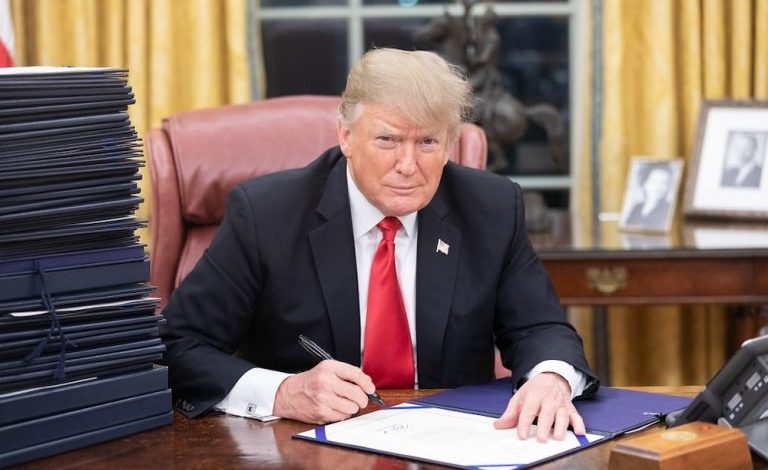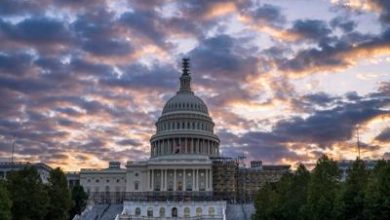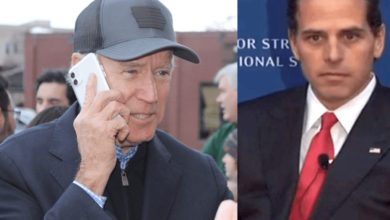BREAKING: Supreme Court Will Hear Trump’s Immunity Claim

The Supreme Court announced on Wednesday that it would take on the case to determine whether former President Donald Trump can assert immunity against federal prosecution in the election subversion case led by Special Counsel Jack Smith.
This historic move not only places Trump’s legal challenges under a magnifying glass but also sets the stage for a pivotal examination of presidential immunity by the nation’s highest court.
Scheduled to hear arguments in the week of April 22, the Supreme Court’s decision to expedite the case signals the urgency and significance of the matter, especially given its timing amidst the heated race for the Republican presidential nomination.
Trump, who has been at the forefront of this race, finds himself navigating through legal complexities as the court previously entertained arguments in a separate case related to the 14th Amendment’s “insurrection ban” and its implications on his eligibility for office.
WATCH:
The core of the Supreme Court’s upcoming deliberation lies in whether former President Trump is entitled to broad immunity from federal prosecution for actions that are alleged to have occurred during his tenure.
BREAKING: U.S. Supreme Court will consider Donald Trump’s immunity claim. Arguments will be in late April.
— ALX 🇺🇸 (@alx) February 28, 2024
The inquiry is not just a legal precedent but a profound constitutional question, marking the first instance where the court will address the immunity of a former president against criminal liability for purportedly illegal acts committed while in office.
The implications of this case are monumental, not just for Trump, who has maintained his innocence by pleading not guilty, but also for the broader understanding of presidential powers and accountability. The court, which boasts a 6-3 conservative majority, is expected to navigate through complex legal and constitutional terrains to reach a verdict that could redefine the limits of presidential immunity.
This case adds another layer to Trump’s legal challenges, portraying a scenario where legal precedents are scarce, and the stakes are high. Earlier in February, Trump filed the long-expected motion requesting a hold on the appeals court decision.
In a legal brief, the former president’s lawyers warned that “conducting a months-long criminal trial of President Trump at the height of election season will radically disrupt President Trump’s ability to campaign” against President Biden ahead of the 2024 election. Trump’s lawyers asked the justices to halt the trial proceedings pending their request for the full slate of judges on the D.C. Circuit to reconsider the case.
Trump was initially slated for a March trial date on charges relating to Special Counsel Jack Smith’s January 6 case, though the case has already been removed from the docket. A new trial date has not been posted, nor is one expected until the appeals processes have played out.
The Supreme Court is already set to hear a case concerning the federal government’s use of a novel legal theory to bring felony “obstruction of an official proceeding” charges against hundreds of January 6 defendants. The legal theory also concerns half of Smith’s four-count indictment against the former president relating to the election challenges.
Trump’s lawyers argued that allowing the case to proceed will have massive implications for presidential power, warning of additional politically motivated prosecutions and blackmail. “Without immunity from criminal prosecution, the presidency as we know it will cease to exist,” his lawyers wrote.
“Any decision by the president on a politically controversial question would face the threat of indictment by the opposing party after a change in administrations. All presidential decisions would be exposed to undue, wrongful pressure from opposing political forces, under a threat of indictment after the president has left office,” the brief continued.


